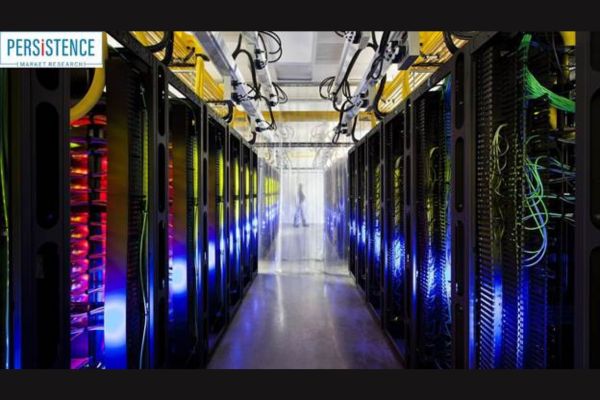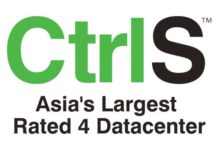A Datacenter is a dedicated, specialized facility designed to house computer servers, data storage systems, networking equipment, and other IT infrastructure in a secure and controlled physical environment. Datacenters centralize computing and data storage resources for cloud services, internet applications, online data processing, and other digital services.
The Global Datacenters Market value was estimated to be around US$ 202,612.5 Million in 2022. The datacenters market is estimated to reach US$ 219,001.5 Million in 2023 projected to value US$ 554,431.8 Million by 2033, growing at a CAGR of 9.8, According to Persistence Market Research.
Key characteristics of datacenters include:
- Secure physical structure with controlled access
- Redundant power supplies and environmental controls (e.g. cooling, fire suppression)
- High-capacity network connections with redundancies and failover mechanisms
- Scalable server and storage architectures including racks and hyperconverged infrastructure
- Monitoring systems, backups, disaster recovery provisions
- Optimized to provide high availabilities of 99.999% uptime or better
What are the core components of a data center?
Data centers house the vital infrastructure that powers modern digital services. Core data center components work in concert to store, process, and deliver critical data securely and at massive scale.
Network Infrastructure – High-speed switches and routers interconnect servers, devices, storage systems, and end users over expansive internal networks as well as external connections. This enables efficient data and application accessibility enterprise-wide or globally.
Storage Infrastructure – High-capacity dedicated storage arrays along with hyperconverged platforms provide abundant, secure repositories for retaining tremendous datasets – the most precious asset in data centers. State-of-the-art data protection and redundancy mechanisms guard against data loss.
Computing Capabilities – Banks of high-density servers equipped with multicore processors supply the raw computing muscle. By clustering physical hosts and virtualizing resources, workloads can scale on-demand to handle processing, memory, and network demands of data-hungry applications.
By integrating robust security up and down the technology stack, modern data centers provide trusted environments for delivering business-critical functionalities across the digital economy. The symbiotic hardware and software elements enable storing, processing, and transporting monumental amounts of data worldwide securely and at lightning speeds.
Key Players:
- Equinix Inc.
- Google Inc.
- Digital Reality
- IBM Corporation
- Hewlett Packard Enterprise
- NTT Communications Corporation
- Cisco Systems Inc.
- Microsoft Corporation
- ABB
- Huawei Technologies Co., Ltd.
- Vertiv
- Fujitsu
- Schneider Electric
- Eaton
- Hitachi
Here are some key factors driving growth in the datacenters market:
• Expanding cloud computing and storage needs as more businesses shift to the cloud, leveraging services like IaaS, PaaS, and SaaS from providers operating large hyperscale datacenters
• Rising importance of big data analytics, machine learning, and other data-driven technologies requiring massive scale-out data infrastructure
• Proliferation of internet of things (IoT) devices and applications requiring computing at the edge, spurring edge datacenter buildout closer to users
• High-bandwidth, low-latency 5G networks accelerating adoption of technologies like blockchain, augmented reality/virtual reality, digital twins and boosting datacenter demand
• Increasing user expectations for always-available applications and services leading companies to ramp investment in disaster recovery and business continuity datacenters
• Ongoing deployment of high-performance computing (HPC) infrastructure for scientific research and AI supercomputing workloads conducted in specialized HPC datacenters
In summary, a datacenter is the physical backbone supporting the global digital economy through enabling storage, processing, and delivery of vast amounts of data in a responsible and reliable manner. Datacenter capacity and capabilities directly impact provisioning of modern online services.















